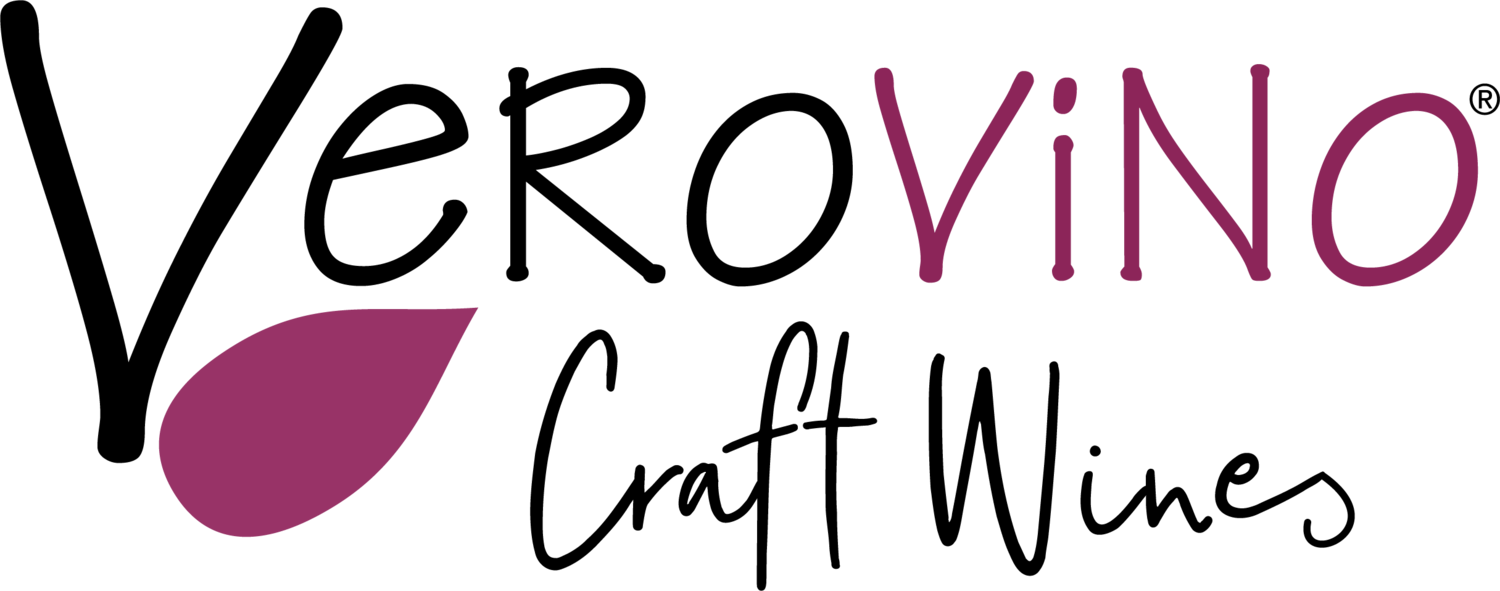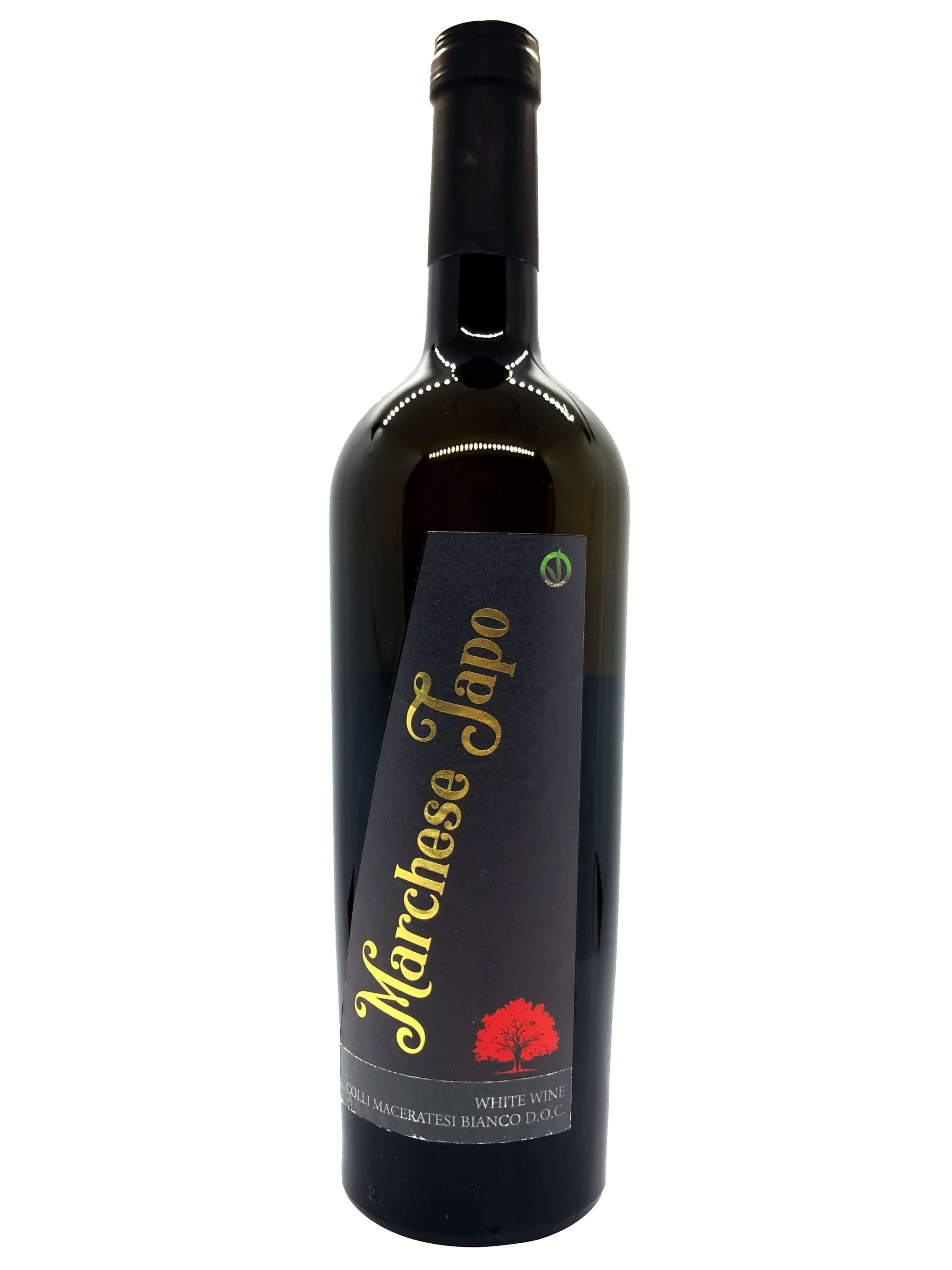Under Le Marche Sun
This is the third in our ‘Women in Wine Partners’ series which highlights a handful of the many women who are holding the small, family wineries together ‘behind the scenes’. Our goal is to get these women to the forefront. In this article, we are getting to know Claudia Pagliotti of Quercia Scarlatta.
Unlike Valentina and Aldo from our last article who come from well-entrenched wine families, Claudia and her husband Stefano’s story, is a tale of opportunity, and knowing when to take a leap of faith. Claudia and Stefano, while from farming families, were living in the city following careers when a brass ring went by, and they grabbed it, jumping headfirst into a new life they have built entirely from scratch. A self-proclaimed ambitious project, their family farm Quercia Scarlatta is located in the Le Marche region of Italy, a region that runs along the Adriatic Sea, on the eastern side of Central Italy, just to the east of Tuscany and Umbria. The family farms sustainably, crafting wines, olive oils, and cosmetic products that tick all the Natural Wine boxes: their products are organic, vegan, biodynamic, and with native yeast fermentation of their wines.
Creating all of this has not been easy, and there were certainly nay-sayers Claudia and Stefano had to combat on the road to creating their dream. But, we will let Claudia tell you the story, in her words.
Now renovated, the farmhouse of Claudia and Stefano that became central to their dream farm, is situated in the idyllic countryside of le Marche, Italy
Claudia Pagliotti of Quercia Scarlatta
Tell us a little bit about yourself.
My name is Claudia Pagliotti, and I am the owner of the farm, La Quercia Scarlatta. It is founded in Central Italy, in the region of Le Marche. At the beginning of the project, it was a region not very well known outside of Italy, but we believed it had great potential for organic and sustainable farming practices.
This project began in 2009 when my husband, Stefano, had the opportunity to purchase an old farmhouse in Le Marche. Our first impression of this farmhouse was not really the best: it was a worn-down house in the middle of the countryside, surrounded by a few withering vines and olive trees. Our initial idea was to renovate the house to be used as a vacation home for our family. However, once we saw the house with the fields around it, both my husband and I understood that there was actually great potential to turn the broken-down estate into a legacy project. It was an ambitious plan, and surely not without its risks, but we abandoned the idea of it becoming a ‘vacation home’, and instead decided to create, from the ground up, an organic farm for wine and olive oil.
As I mentioned, the idea was more than ambitious, considering that we started this project from square one. To integrate winemaking and olive oil production with organic farming was the most difficult part, but it was also what really pushed us to truly throw ourselves wholly into the project. To protect the local environment and maintain it has always been an important value of ours, and we have tried very hard to imprint this value onto our children. So, what better way to bring to life this value than to create and grow a family-run organic farm and winery?
What is your first memory involving your love for wine? When did your love of wine take root?
Both my husband and I come from farming families, and the idea to relive our childhood in the countryside was very appealing to us. Working in the fresh air, the sweet and intoxicating aromas of freshly crushed grapes and olives was an integral part of our memories, and the possibility to relive it all drew us in immediately.
What is your favorite wine?
Often, I am asked what is my favorite wine. To be honest, I don’t have a favorite wine, however, I am very excited and anxious to see what becomes of the next wine we have been working with: a champagne-style sparkling wine aged 36 months on the lees that is a blend of Incrocio Bruni and Chardonnay. Chissà, who knows!
Life on the Farm
How did you get involved in the winery and how did this passion project develop?
Claudia surrounded by her family and vineyard helpers that work together to run Quercia Scarlatta.
We started our project by converting our 10 hectares (approximately 25 acres) to becoming organic, ignoring the advice of local technicians who said it wasn’t economically and financially viable to cultivate the land and respect the local natural environment. We decided to push onward nonetheless, understanding we were to come up against many obstacles.
In 2010 we founded our small farm and uprooted the old vines, and planted new ones, deciding to also plant around 100 olive trees. Now, we have approximately 7.5 acres of vineyards of indigenous grapes and 304 olive trees. We produce around 18,000 bottles per year of organic wine (between red, white, passito (dessert wine), and grappa), and around 1000 kilograms of organic extra virgin olive oil.
However, a working business with high standards of quality needs more than just raw materials like grapes and olives. In fact, it needs an entire production line starting from the farmland and cultivation to the finished product and even marketing. So, we also built a structure to process the grapes and olives; a place that was modern and efficient, easy to control the quality of our products, where we blend technology and tradition as much as possible.
Making the Big Move from City to Country Life
As ‘La Quercia Scarlatta’ project began to grow, and my husband and I had to rethink our previous jobs to dedicate ourselves wholly to this endeavor, one that had began as a dream of utopia, but was requiring more and more of our time. My husband left his career with an international firm completely, and I began to drastically reduce my time spent in my office where I practiced psychology and therapy. Stefano also began to take agricultural courses and various other classes to help us understand how best to work with our unique products created on our farm.
The Key to Being Bravo
Meanwhile, in the vineyard and olive groves, our vines and trees were growing rapidly, and we began to visit other wineries to pick up and learn a few secrets from other wineries. We visited both large and small, Italian and French, and in this wide-ranging tour, we began to understand that to be bravo (or outstanding) in this industry one must not be merely famous or well-known. Instead, one becomes bravo when they work with passion and work harmoniously with those around them, be they clients, suppliers, or collaborators.
Claudia communes with their draft horse which they ‘adopted’ to work in the vineyards, farming sustainably instead of using tractors.
During this time, we also became involved with an association that trains plow horses for vineyard work, saving them from the butcher block. We immediately grabbed the brass ring and rescued a Trait-Comtois draft horse that still today helps us work in the vineyards and to farm sustainably and in an environmentally friendly manner.
Besides wine and olive oil, are there any other products Quercia Scarlatta produces?
Our other passion project is interwoven with the wine and olive oil, and was born out of analyzing the production processes of crafting our wines and olive oils. We noticed right away that we were throwing away a great part of our raw materials after the initial pressing, crushing etc. We were wasting nutrient dense and high-quality ingredients, so with the help of natural cosmetic experts, we began to separate some of these raw materials to create a line of natural and organic cosmetics. Thanks to the help of a specially selected laboratory specializing in only organic and vegan products, we brought to fruition a line of quality body care products that we are truly proud of.
How do you decide and share responsibilities within your family?
Our sons, Jacopo and Giovanni, first came here when they were very young. Today, fortunately, they have grown and are a true part of the work force that is indispensable in both the vineyard and winery, and are at the heart of this innovative project. Our project is still growing and its operation is still completely reliant on our nuclear family, especially in these recent months during the pandemic. Every one of us has their role and place, but we all share at heart the same passion and dream: to create natural and organic products that are sustainably and high-quality.
Tasting this Woman in Wine’s Work
One of Quercia Scarlatta’s wines is a natural white wine blend called Marchese Japo. Organic, vegan, and made with native yeast fermentation, it is a unique, interesting, and delicious white wine, the kind of wine that makes you think while tasting. Blended from three grapes, besides Trebbiano, the other two you probably have never heard of:
Maceratino, a white grape native to their province of Macerata, a grape which was recently renamed to Ribona;
Incrocio Bruni 54 (a cross of verdicchio and sauvignon blanc that took creator Professor Bruni 54 attempts to successfully craft, and that story perhaps warrants an article in and of itself) brings and interesting complexity to this white wine. This complexity also comes from, despite never aging in oak (it is entirely steel-aged), it is aged for 9 months on the lees, which impart a deep inviting straw yellow color and an intense and creamy flavor.
From now until Sunday March 20th, use the code VEROFOUNDERBDAY to receive 10% off your order in our store… a good time to try a bottle of Claudia’s Marchese Japo!




